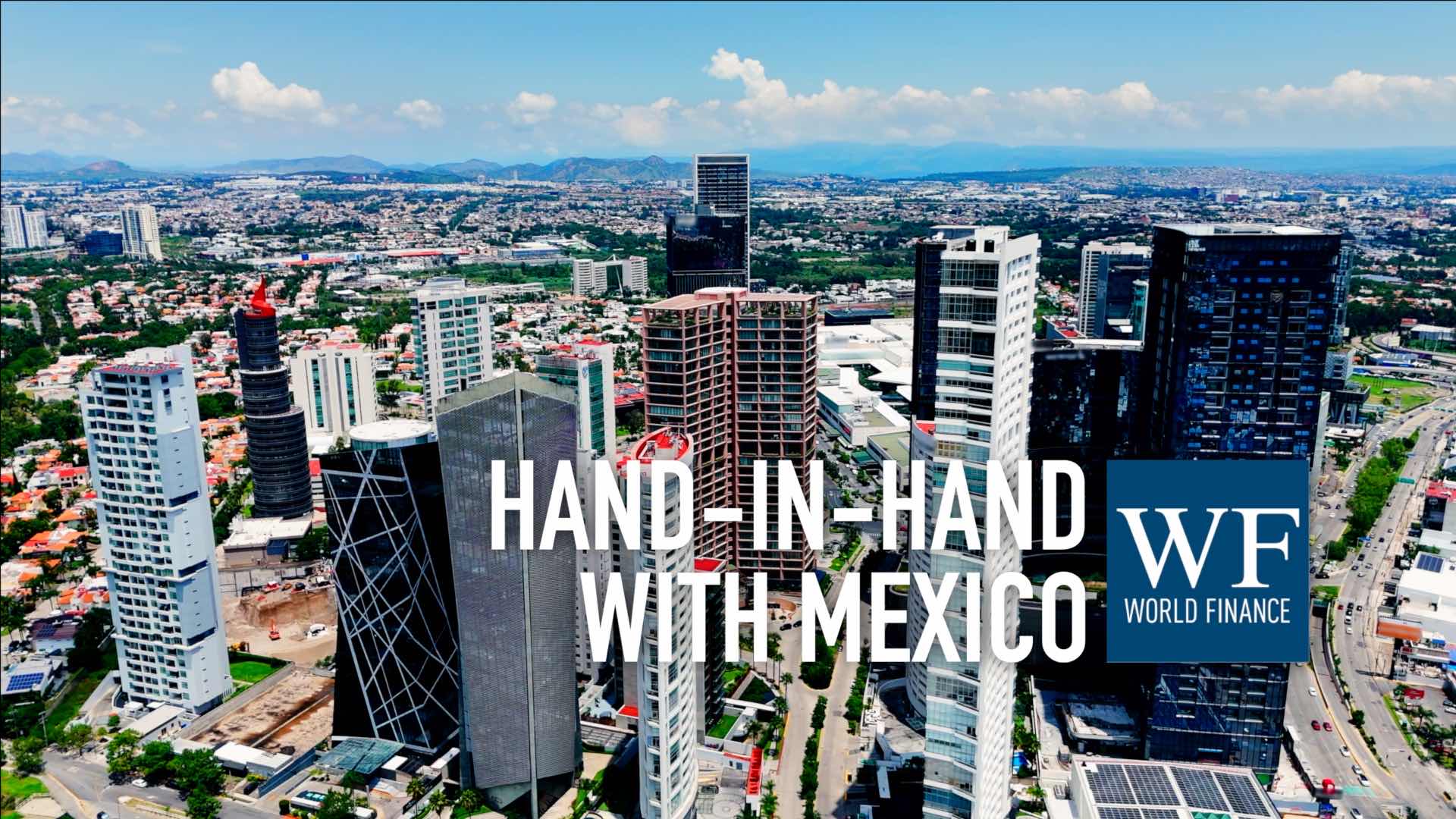Huw Jenkins on Latin America | BTG Pactual | Video
World Finance interviews Huw Jenkins on how the bank has navigated the Latin American financial markets
Related:
Transcript
With 30 years of experience, BTG Pactual is a leading investment bank, asset manager and wealth manager with a dominant franchise in Latin America. Discussing the ways in which it has expanded in recent years is Huw Jenkins, a managing partner at BTG Pactual.
World Finance: Firstly, introduce us to BTG Pactual tell us what has made you so successful in Latin America, and what you offer your clients
Huw Jenkins: We are a Latin American bank, so we have 2500 employees, we’re based in South America’s largest economy Brazil, which is our home market, and we now have offices in Chile, Colombia, and Peru. Of that 2500 employees we’ve got 200 partners who are deeply embedded in the business community, and in each of the territories in which we operate. And then we combine that with the global reach of having distribution offices in London, New York and Hong Kong, and so in terms of being able to offer access to capital markets, we have all the capability that a global investment bank might have. So we think we offer the best of both worlds to our clients, the intimacy, fast decision making, and understanding of the scene within the South American economies, and at the same time, the global reach of a world-class distribution network. So, we were described recently in a well-known international publication as a pocket battleship, so rather than being the classic emerging market securities company, where it’s an agency-brokerage model, we actually have significant balance sheet to commit to our clients as well, so we have the ability to underwrite and to lend in probably the similar if not greater scale than the risk limits that global banks have in Latin America. So we combine, knowledge of the local scene, global distribution, and balance sheet strength.
“The real challenge is finding good teams that fit our culture”
World Finance:What are some of the challenges that BTG has had to overcome in the LatAm markets?
Huw Jenkins: Finding a way to enter some of the markets that we chose to enter in the last couple of years, we’ve had to think about whether it makes sense to go with an established local platform, or whether it makes sense to do an organic build. So one of the things we felt very strongly, was that the experience we’d had in Brazil of it becoming a destination for international capital, and Brazilian companies wanting to reach out to the rest of the region, meant that we really needed to focus on building a regional network so that we had capability within all the various market places. And that involved different strategies for different territories, so we made some acquisitions, we did some start-up operations, we’ve opened some additional offices. So I think the real challenge is finding good teams, whether it’s through acquisition or whether it’s through recruitment, that fits our culture and can deliver our kind of service to our clients.
World Finance: BTG was listed on the Brazilian stock exchange in 2012, what do you think the reason for your success has been?
Huw Jenkins: Primarily, our culture, and our position as the leading independent Latin American investment services company. So I think people were very attracted to the idea that as Latin America continued to develop, there would be a process of financial deepening, so there’s a tailwind for us in terms of being in the right part of the world with the right product offering as a securities company. And then on the other hand, we have a unique culture because although we’ve gone public, we’ve chosen to maintain our partnership structure, so 75 percent of the company is still owned by the partnership, we have no intention of ever allowing the partnership to sell its shares on the public market so we aren’t in the business of making one generation rich at the expense of others, we want to keep a culture of owner-managers within the company. And that results for investors in the company in showing best in class really, cost-income ration and revenue per capita, in terms of our efficiency measures.
“We really look to acquire companies that have great customer relationships”
World Finance: You undertook several important mergers last year in Latin America, can you tell us about these and and what effect they’ve had on BTG Pactual
Huw Jenkins: We acquired, or merged with, a business in Chile called Celfin, which was the leading independent investment services platform in Chile, which brought about another 500 employees into the group and really gave us a very strong position in terms of primary and secondary markets in Chile. And we also acquired Bolsa y Renta in Colombia, which is a great group of guys, who are very entrepreneurial, who basically established or re-established this company over the course of the last 5 years. And what we try and do when we make acquisitions, as I was saying earlier we’re a pocket battleship, we do have a significant balance sheet that we can deploy, but what we really look to do is to acquire companies that have great customer relationships, and actually very little in the way of trading or balance sheets, so that we can actually bring value-added to them by connecting their customer relationships with our balance sheet strength.
World Finance: Tell us about some of the highlights of your financial results last year.
Huw Jenkins: Last year was our first year as a public company and we had a very good set of results. We were especially pleased because we were able to deploy the capital that we raised from the IPO very effectively during the course of the year, so our return on average equity was close on 30 percent. We grew our revenues by over 100 percent, to north of $3bn and we had about a 48 percent net margin, so round about a 40 percent cost to income ratio, which we were delighted with. If you look at the recurrent income that the bank generates from either fees on asset management, or commissions on brokerage activity, we covered our expense base two and a half times before bonus, so a very very healthy financial model. And I think importantly for investors, we were able to demonstrate that we were growing our franchise businesses the recurrent income, that comes from investment management mandates or from non-risk businesses such as brokerage or investment-bank advisory, to be a more significant part of our business, which resulted in a really very strong stable earnings base for the firm.
“We want to focus on developing our own people, remaining focussed on the clients, being a meritocratic organisation”
World Finance: Finally, tell us about some of your developments and targets for the next few years
Huw Jenkins: What we really want to do over the next several years is really focus on execution, so making sure that we deliver our partnership culture throughout an enlarged organisation, and that really means focussing on developing our own people, remaining focussed on the clients, being a meritocratic organisation. So with a bit of luck, it will just be more of the same.
World Finance: Huw, thank you
Huw Jenkins: Thank you.

 Banorte: Growing together, growing with Mexico, growing with you
Banorte: Growing together, growing with Mexico, growing with you Ooredoo Group: Innovation, integrity and social responsibility mean ‘the sky is the limit’
Ooredoo Group: Innovation, integrity and social responsibility mean ‘the sky is the limit’
